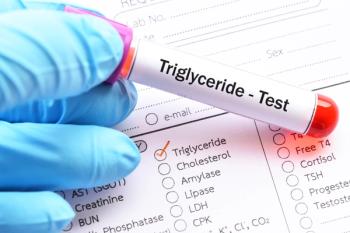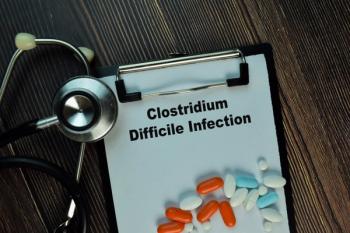
Digestive Health
Latest News
Latest Videos

CME Content
More News


Linaclotide has been approved to treat patients 7 years and older with irritable bowel syndrome with constipation, becoming the first treatment for this indication in this age group.

The FDA approves a simplified single-injection treatment for ulcerative colitis, enhancing patient experience with monthly dosing convenience.

The approved indication now includes adults with moderately to severely active ulcerative colitis and Crohn disease who have not been treated with tumor necrosis factor blocking agents.

This is the first pediatric FDA approval for golimumab, according to the manufacturer.

Guselkumab becomes the first and only IL-23 inhibitor with a fully subcutaneous induction regimen for adults with ulcerative colitis.

Use of educational resources at a gastrointestinal office improved pneumococcal vaccine uptake in patients with celiac disease.

Pharmacists enhance patient safety by addressing common medication errors, ensuring proper drug use, and improving therapeutic outcomes in clinical practice.

Patients with inflammatory bowel disease (IBD) who switched to the biosimilar reported adverse events, but these are believed to stem from health anxiety.

Plozasiran significantly reduces triglyceride levels and pancreatitis risk in FCS patients, offering hope for effective treatment options.

Durvalumab continues to demonstrate efficacy in a variety of cancers, with new data from the phase 3 MATTERHORN trial solidifying its use with chemotherapy in gastric cancer.

The study found biosimilar initiation rose to nearly 42% from 2016 to 2023.

A direct link between memories and physical changes has not yet been established.

Clostridioides difficile (C difficile) represents a serious public health threat, with pharmacists and advocacy organizations playing critical roles in prevention, education, and management.

The FDA grants fast track designation to TEV-53408, a promising treatment for celiac disease designed to address gluten intolerance and improve patient outcomes.

INF108 Granted Orphan Drug Designation, Rare Pediatric Drug Designation for Preterm Infants With NEC
Necrotizing enterocolitis (NEC) is a life-threatening illness that is characterized by the inflammation of the intestinal lining, which can lead to intestinal perforation.

Pharmacists can promote prevention through the implementation of antimicrobial stewardship initiatives and advocate for fecal microbiota transplant.

The new indication for guselkumab in Crohn disease builds off a previous approval in ulcerative colitis, providing patients a treatment option for the major forms of inflammatory bowel disease.

The launch of ustekinumab-stba following its FDA approval expands patient access to this therapy with a variety of indications.

Pharmacists can identify medications and conditions that may augment or exacerbate constipation.

The treatment is currently undergoing evaluation in an investigational preclinical program and is projected to be in human trials in 2026.

The designation was granted after positive results from the phase 1 STOMP-I clinical trial (NCT01915927).

New data from the longest known trial of pediatrics and adolescents in the postacute phase of COVID-19 show they are at a heightened risk of gastrointestinal tract symptoms.

The authors are optimistic that these findings may help develop defenses to prevent food allergies in at-risk infants.

The authors are optimistic that this method can be replicated to identify other allergens that manifest into eosinophilic esophagitis (EoE).































